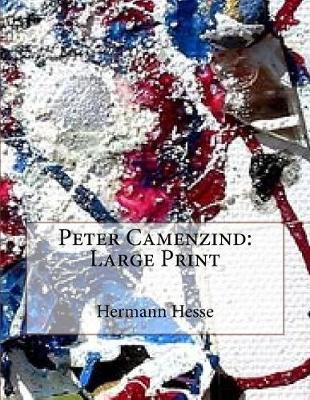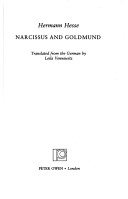Peter Owen modern classics
2 total works
PETER CAMENZIND is the novel that ensured Herman Hesse's early literary reputation. Its semi-autobiographical basis betrays an important glimpse into the development of his beliefs and concerns, in particular the struggle of an artist to achieve a personal aesthetic ideal within a materialist and uncomprehending society. Born into a Swiss village, Peter Camenzind is a introverted peasant boy who becomes a student at Zurich University where he is soon destined for some minor academic post. Yet he does not choose this path; perturbed by what he perceives to be the thankless and turbulent unrest of human nature, Peter Camenzind instead seeks his salvation through self-knowledge in the manner of a Romantic hero. But salvation is elusive; frequenting the bars and literary salons of European cities, his love affairs end as merely 'amusing' episodes, his drinking is escapist and he is further shocked by the death of the one friend whose life seemed to have some meaning. Finally he turns to St Francis of Assisi in a last attempt at self-discovery, but personal sublimation after the example of the nature-lovng saint still does not give his mind rest.
It is not until he returns to his own village to care for his dying father that he can find the path that leads back to himself. Written with a profound intellectual clarity and insight when the author was only twenty-seven, PETER CAMENZIND illuminates the very foundations of the deep humanity and searching philosophy which are the hallmarks of Hesse's later novels.
It is not until he returns to his own village to care for his dying father that he can find the path that leads back to himself. Written with a profound intellectual clarity and insight when the author was only twenty-seven, PETER CAMENZIND illuminates the very foundations of the deep humanity and searching philosophy which are the hallmarks of Hesse's later novels.
Hesse's novel of two medieval men, one quietly content with his religion and monastic life, the other in fervent search of more worldly salvation. This conflict between flesh and spirit, between emotional and contemplative man, was a life study for Hesse. It is a theme that transcends all time.
The Hesse Phenomenon “has turned into a vogue, the vogue into a torrent . . . He has appealed both to . . . an underground and to an establishment . . . and to the disenchanted young sharing his contempt for our industrial civilization.”—The New York Times Book Review
The Hesse Phenomenon “has turned into a vogue, the vogue into a torrent . . . He has appealed both to . . . an underground and to an establishment . . . and to the disenchanted young sharing his contempt for our industrial civilization.”—The New York Times Book Review

